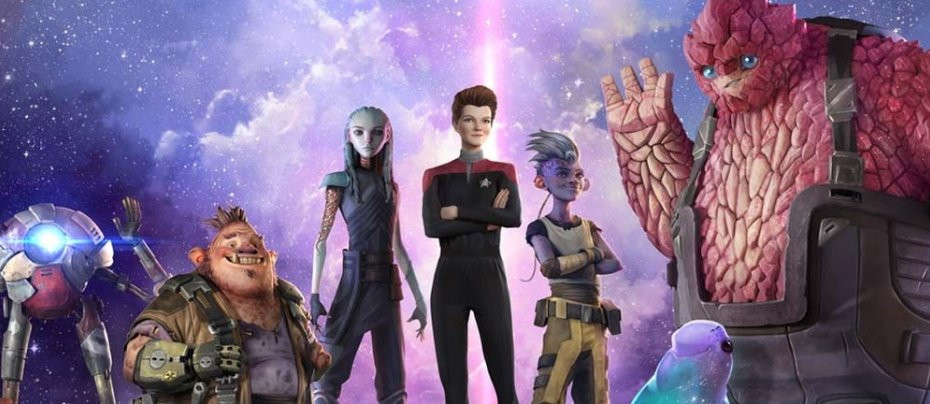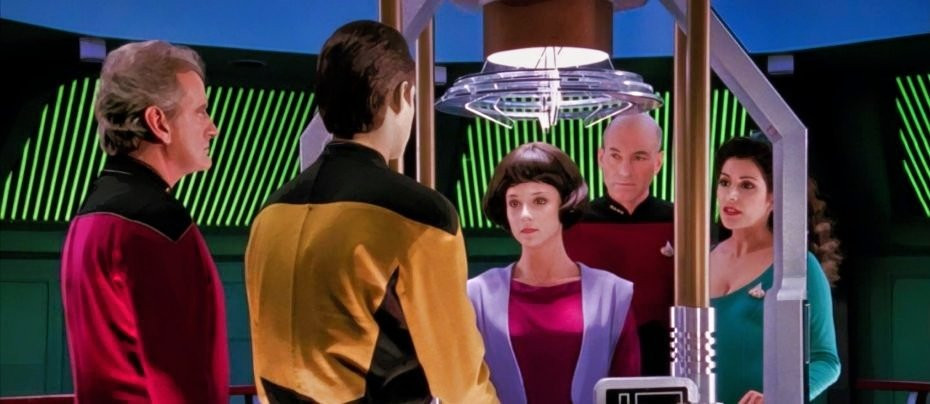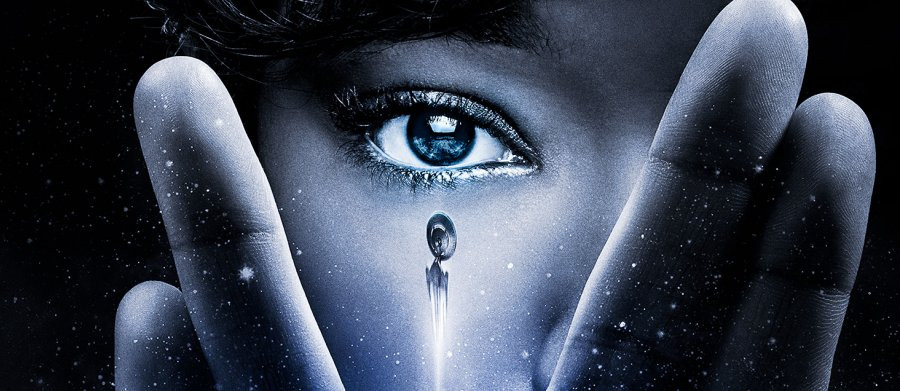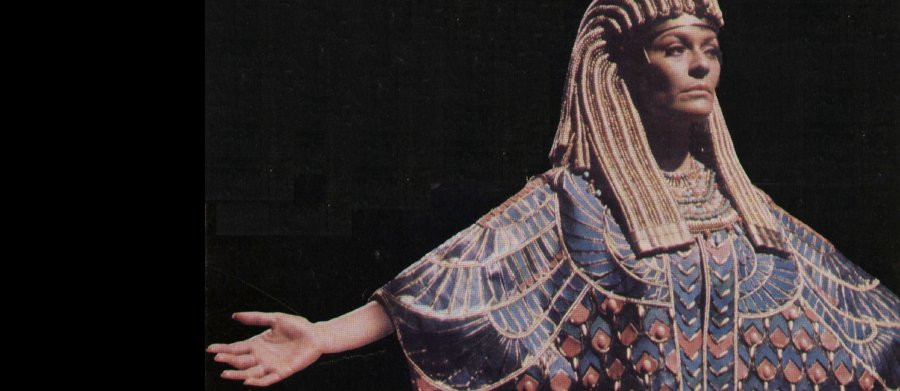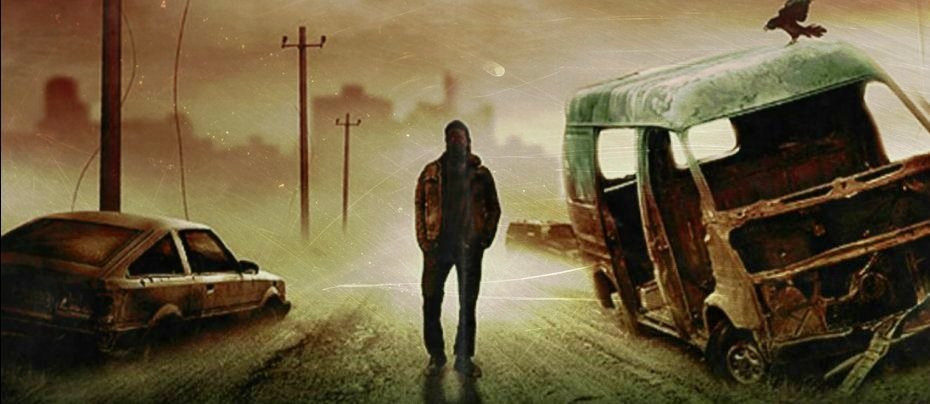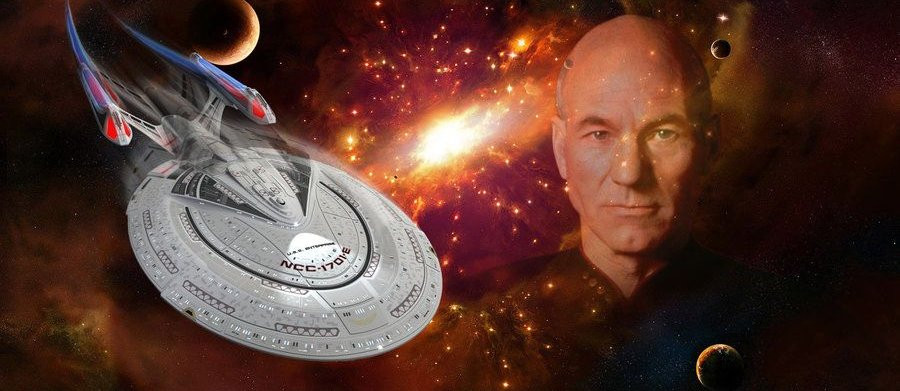
Star Trek: Picard
Review: Daniel Tessier
Star Trek: The Next Generation is one of the most popular and successful series in the entire Star Trek franchise. It revitalised the concept for television in the 1980s and led to its own spin-off films and series. Now, with Trek having found new success on the small screen thanks to Star Trek: Discovery, CBS have expanded the franchise again in all sorts of directions, and it's no surprise that the production team decided to look back to The Next Generation for inspiration, in particular one of its most beloved and enduring characters.
Patrick Stewart was initially reluctant to return to the role of Jean-Luc Picard. He'd last played the captain of the USS Enterprise on the feature film Star Trek Nemesis back in 2002. His career had moved on since then, and many would say, so had the franchise. However, when he met with Michael Chabon, the showrunner, to explain his refusal to take on the role, they spoke at length about their respective thoughts of where Picard would be after so much time, and Chabon was able to convince Stewart to take the role. Key to this was that the actor would be heavily involved in the plotting of the series and the conception of his character. They would be joined by new Trek supremo Alex Kurtzman, who had previously worked heavily on the 2009 film Star Trek and its sequel Star Trek Into Darkness as well as co-creating Discovery, and writer Kirsten Beyer and writer-director-producer Akiva Goldsman.
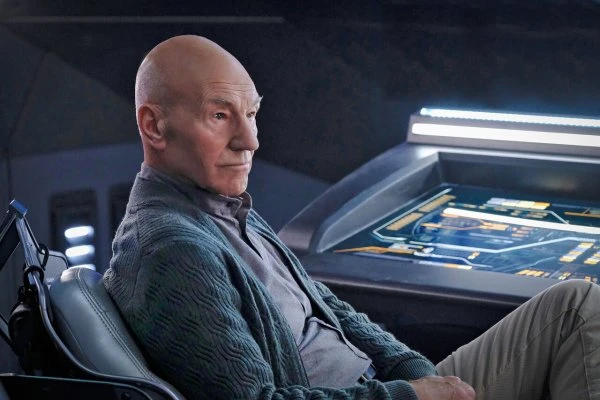
Star Trek: Picardis a highly serialised story, more in the mode of the highly bingeable online series, with the franchise adapting to a more modern mode of television storytelling. Tellingly, Picardis the first Trek series since The Next Generation not to be named after the main ship or space station of its setting. There are starships aplenty, of course, but this is a series about characters, and Picard's character is central. However, previous events in the Trek universe weigh heavily on the series. The first season is set in 2399, twenty years after Star Trek Nemesis and 29 years since the end of The Next Generation. The planet Romulus was destroyed by supernova fourteen years previously, as referred to in the 2009 movie.
The essentials of the series are easy enough to grasp, although the viewer is expected to have at least some knowledge of Star Trek. Picard's fallen out with Starfleet due to their mishandling of a refugee crisis, something with clear parallels to the controversial handling of (largely Syrian) refugees moving across Europe, and the increasingly xenophobic border controls of the United States. The Romulans, one of the most recognisable races in Trek, are now without a homeworld and the power gap in the region has led to turmoil. The Federation is also reeling from a terrorist attack by androids, which directly led to them dropping the refugees at the side of the road and has led to a hatred and mistrust of artificial beings. Oh, and the Romulans have gotten their hands on a knackered Borg Cube, which poses considerable risks for everyone.

That's already a lot of backstory to be catching up on for a more casual viewer, but the series focus on character sketches it in with a lightness of touch. Each episode begins with a flashback lending context to the events and their effect on the characters. A working knowledge of the Trek universe would certainly make for a richer experience, but it's certainly possible to come to the series fresh, and many of the ideas are tried-and-tested sci-fi tropes.

Stewart's performance as Picard (now 94 years old – the character is fourteen years older than the actor) is the cornerstone of the series, and he is absolutely exceptional. Stewart portrays Picard – retired from the admiralty – as a man with deep convictions but who hides a bitterness at Starfleet for what he feels was a betrayal. While still powerful, intelligent and energetic, he's an old man now and isn't without frailty. In a notable element of continuity, he is suffering from a degenerative neurological condition, something that was foreseen by the TNG finale, “All Good Things,” and this is beginning to affect his capacity. He is, though, as resolutely kind and compassionate as he ever was, and has rather mellowed in his old age (who'd have expected to see him become such a hugger?)

Into his life falls Dahj Asha, a young woman who has just discovered she is an android – or synth as the late-24th century parlance would have it. She has seemingly been created as the “daughter” of Data, Picard's second officer on the Enterprise, who lost his life in Nemesis. Data's loss is profoundly felt throughout the series, with Picard dreaming of his former friend. Brent Spiner returns to the role of Data as though he'd never been away, appearing several times in some unexpected ways throughout the season. Picard is unable to save Dahj from Romulan assassins, but his investigations lead him to discover that she has a twin sister, Soji.
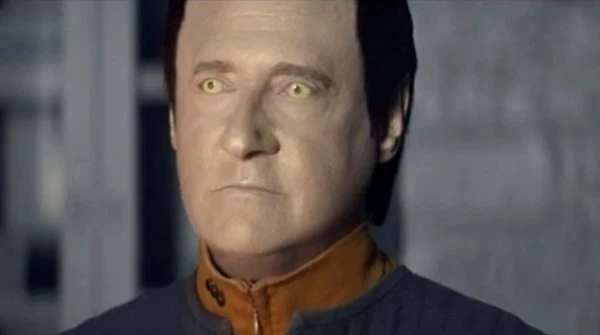
Both Soji and Dahj are played by Isa Briones, primarily a musical theatre actor prior to this (she sings the closing song on the season, Irving Berlin's “Blue Skies,” a song beloved by Data). To begin with, her portrayal of Dahj is rather more dynamic than that of Soji, who is working as a scientist on the Artefact – the abandoned Borg Cube – with no idea that she's not human. However, as Soji learns more about herself, including the fact that she's only three years old, her world falls into turmoil and Briones gets to really impress with a heartfelt performance.

Picard goes on a quest to find and protect Soji from the Romulan secret intelligence service, not easy given she's on an extremely dangerous artefact run by Romulans, and that he now has next to zero influence in Starfleet. He recruits his former friend Raffi Musiker, a new character who became Picard's right hand while he was admiral. Played by Michelle Hurd ( Law and Order: Special Victims Unit, The Glades, Blindspot), Raffi is one of the most interesting and three-dimensional characters in the series. Having been forced out of Starfleet due to her association with Picard, she's become a recluse and a substance abuser, an unusual level of harsh realism for a human character in Trek. Raffi's relationship with Picard is tenuous but she is unable to let go of the cause; she's become a paranoid conspiracy theorist in her years alone but just so happens to be absolutely right.
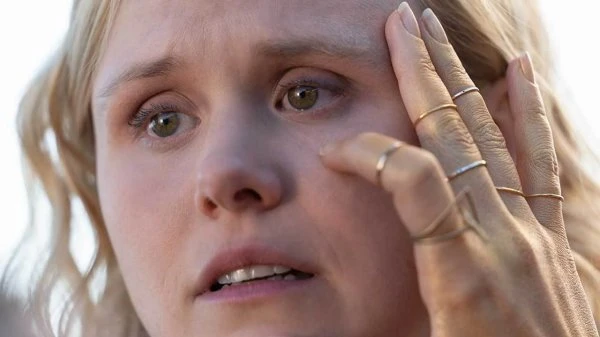
Alison Pill (Devs, American Horror Story, Scott Pilgrim vs. the World) plays Dr. Agnes Jurati, a cyberneticist who works for the Daystrom Institute (an oft-mentioned but previously unseen research organisation in the Federation). With links to Bruce Maddox (a character who made a vital appearance in the TNG episode “The Measure of a Man” arguing against Data's rights as a person), she was involved in the early work which led to the creation of the synths. She's new to star travel and both her enthusiasm and fear are wonderfully real.

Santiago Cabrera (The Musketeers, Heroes, Salvation) brings a lot of charm and sex appeal as Cristobal Rios, another Starfleet drop-out with a difficult backstory. Rios is the captain of the starship La Sirena , an old but fast and sophisticated freighter (hints of the Millennium Falcon there), and technically the man Picard has to answer to as he is chartering the ship. In an ingenious move, Cabrera also plays the entire holographic crew of La Sirena. Star Trek: Voyager introduced the Emergency Medical Hologram, and twenty-odd years later, such things are ubiquitous that La Sirena comes with a whole suite of holograms. It's a sort of Microsoft Office for the 24th century. Cabrera plays holograms for medical, engineering, hospitality, navigation and tactical, each with his own personality, accent and hairstyle. The six characters give Cabrera an amazing opportunity to show off his range, and he's an absolute highlight of the series.

Picard also picks up Elnor (Evan Evagora, a new face) a young Romulan refugee who was raised by ninja space nuns (really) on the planet Vashti, where Picard visited during his time trying to organise relief and evacuation. As Picard's bodyguard, Elnor's pretty one-note but he adds some youthful excitement to the series. There are a lot of Romulan characters in the series, notably Picard's housekeepers Zhaban and Laris, who liven up the earlier episodes. Played respectively by Jamie McShane ( Sons of Anarchy , Southland) and Orla Brady (Into the Badlands, American Odyssey , American Horror Story), they're former Romulan intelligence agents, which is rather handy. On the opposite side, working on the Artefact, are Narek and his shifty sister Narissa. Harry Treadaway ( Penny Dreadful, Mr. Mercedes ) plays Narek, a sneaky charmer who manipulates Soji, using her and pushing her to discover her true nature. Narissa, played by Peyton list ( Mad Men, Gotham) is a pretty two-dimensional space assassin, and she gets irritating pretty quickly. There's also Admiral Oh, the head of Starfleet intelligence, played by Tamlyn Tomita ( Glee, Berlin Station, The Good Doctor), who is a supposedly Vulcan officer, but up to no good behind the scenes.
The season sees Picard on the trail of Soji, heading to the Artefact via various stops across the galaxy, alternating with scenes involving Soji on the Artefact, until Picard is able to rescue Soji and accompany her on her journey to discover her origins. The ten-episode season is paced unevenly. It spends the first three episodes largely on set-up, although there's still plenty of action, before moving faster on its galaxy-spanning journey. The slower pace is actually very refreshing and allows far more focus on character development than would otherwise be possible, but it has its drawbacks. By about the seventh episode, the more leisurely stopovers have left the remaining episodes with a lot of heavy lifting to do, and far too much action and information have to be covered in the two-part finale. On the whole, though, the season is well-plotted, with the episodes “ Stardust City Rag” and “Nepenthe” being highlights, each one stopping on a new planet and introducing favourite characters.
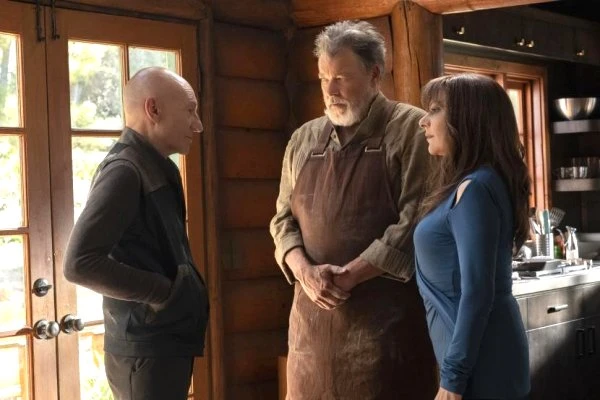
Classic characters returning to the franchise is an obvious draw for Trek fans. Jonathan Frakes (who also directs several episodes) and Marina Sertis return as William Riker (now Admiral) and Deanna Troi, central characters of The Next Generation and married as of Star Trek Nemesis . Now living on the planet Nepenthe, they're mostly retired and raising their daughter Kestra (Lulu Wilson, a young actor who is definitely one to watch – she steals the episode). Picard meeting his old friends is a wonderful reunion amidst intense action. They're not the only old friends, though. Jonathan del Arco ( Nip/Tuck, The Closer, Major Crimes) returns as Hugh, the former Borg who made two appearances on TNG, and from Star Trek: Voyager comes Jeri Ryan, as a battle-hardened, more cynical Seven of Nine. (One excellent element of the series is its prominent roles for older actresses.)
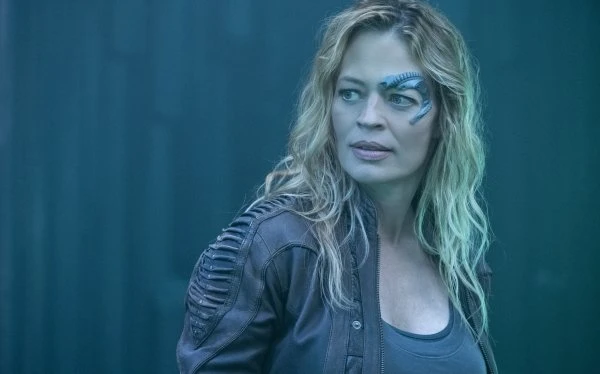
While the pacing problems stop the first season of Star Trek: Picard from being a classic opening season, it features some gripping and beautiful material centring on some excellent performances. Stewart's dedication to the role is evident, and his work behind the scenes is essential for what makes the series work. With the treatment of both the Romulan refugees and the outlawed synths reflecting western society's attitudes to foreigners and marginalised groups, and the increasingly inward-looking Federation reflecting the more right-wing governments that have become prominent across the world, Picard holds a mirror up to a world going through a tumultuous and difficult period. For Trek fans, it's also a wonderful chance to revisit the universe they love in a new era, catching up with old friends and seeing how the future history has developed. While it's certainly a grimmer, more adult take on Star Trek than we're used to, this adds a level of realism that balances the increasingly miraculous future world depicted. The finale, which is both rushed and resolves the season with some very controversial decisions, is nonetheless powerfully optimistic and shows there's hope for both the world of Star Trek and our own.
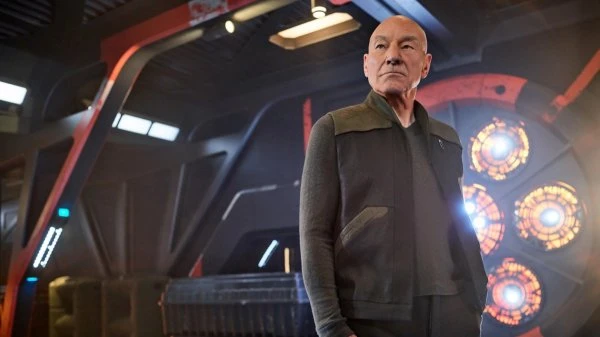
The first season of Star Trek: Picard is available in the United States on the streaming service CBS All Access, and on other services worldwide including Amazon Prime. Second and third seasons have already been ordered, and with Patrick Stewart still firmly in his role as both star and executive producer, we can expect both a very personal and expansive continuation. With so much more of Trek's future left to explore, there's no shortage of routes for the series to develop.
About the reviewer of this article: Daniel Tessier
Dan describes himself as a geek. Skinny white guy. Older than he looks. Younger than he feels. Reads, watches, plays and writes. Has been compared to the third, fourth, fifth, sixth, seventh, eighth, tenth, eleventh and twelfth Doctors, and the Dream Lord. Plus Dr. Smith from 'Lost in Space.' He has also had a short story published in Master Pieces: Misadventures in Space and Time a charity anthology about the renegade Time Lord.
Dan's web page can be here: Immaterial
Published on August 17th, 2020. Written by Daniel Tessier for Television Heaven.


